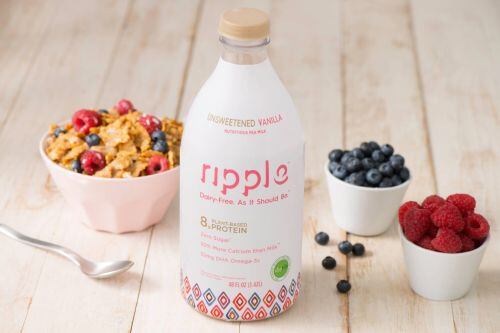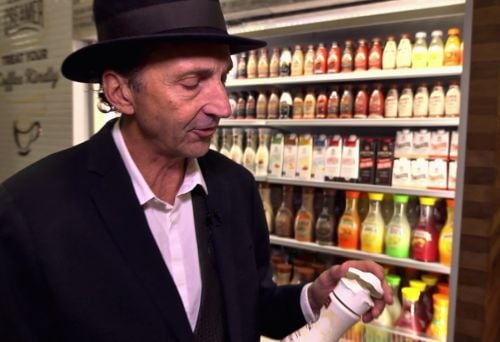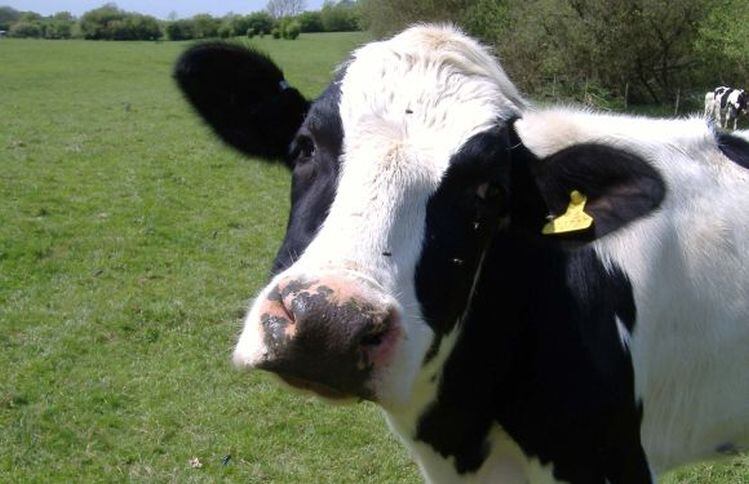Speaking to FoodNavigator-USA after raising $64m in a Series C funding round led by Euclidean Capital,** Neil Renninger PhD, said: “I agree [with the dairy industry] that alternatives should be good alternatives and right now, some of them [plant-based rivals] are terrible alternatives to dairy, but we can make products that are actually superior to dairy from a nutrition standpoint.”
With the nutritional merits of plant-based dairy alternatives in the spotlight this week following the release of a study from McGill University in Canada noting that rice and coconut milk in particular “cannot act as an ideal alternative for cow’s milk,” Dr Renninger claimed that Ripple blew both dairy milk and plant-based alternatives out of the water in the taste, nutrition and sustainability stakes.
Ripple Foods utilizes novel technology that strips out unwanted components (color/flavor) from commercially available plant protein isolates to yield a neutral-tasting protein that can be incorporated into foods and beverages in high quantities, and had designed its ‘milk’ not simply to match, but to outperform dairy products, argued Dr Renninger.
By overcoming the sensory barriers (“most plant proteins taste awful,” he observed), Ripple has been able to dial up the protein (8g per 8oz) and dial down the sugar (6g per 8oz) to create a soy-, dairy-, and nut-free beverage with 20% fewer calories, a sixth of the saturated fat and half the sugar of 2% dairy milk, and eight times the protein of almond milk, he said.
We’re designing products with a superior nutritional profile to dairy – and a lower carbon footprint
Each serving of Ripple – which is now sold in 10,000+ stores in the US and Canada 18 months after launch - also contains 32mg of the long-chain omega-3 fatty acid DHA (from microalgae), 45% of the DV for calcium, 30% of the DV for vitamin D, 10% of the DV for vitamin A and 13% of the DV for iron.
“Show me a dairy product that has the fat profile that we have…” added Dr Renninger. “We are able to take all of the good from dairy without the bad … We’re designing products with just as much protein, more calcium and vitamin D, less sugar, less saturated fat and fewer calories, and a far lower carbon footprint.”
The way milk is produced on an industrial scale is far more scary and upsetting than what we are doing
He was also quick to dismiss those pitching dairy milk’s ‘simplicity’ and ‘inherent nutrition’ against the lengthier ingredients list and ‘heavily processed’ nature of plant-based rivals, adding that “From a nutrition standpoint as long as the nutrients are bioavailable, that’s what important.”
From a processing perspective, meanwhile, you could argue that “the way milk is produced and cows are treated on an industrial scale is far more scary and upsetting than what we are doing,” he claimed.
Asked about protein quality (dairy industry experts note that pea protein lacks high levels of all the essential amino acids), Dr Renninger said this issue had been overplayed. “If you eat a well rounded diet, you’re getting all the amino acids you need, no one should subsist just on Ripple... or anything else.”

Launched in April 2016, Ripple is now in 10,000+ stores in the US and Canada including Kroger, Whole Foods and Target, and spans refrigerated 48oz beverages, shelf-stable 8 oz kids' packs, half & half, and a non-dairy Greek yogurt with 12g protein per serving. New products in the pipeline include vegan ice creams.
The ingredients in the original (sweetened) version include water, pea protein, sunflower oil, organic cane sugar, algal oil (for the long-chain omega-3 fatty acid DHA), vitamins A and D, calcium phosphate, potassium phosphate, sunflower lecithin, natural flavors, sea salt, organic guar gum, and gellan gum.
The ‘milk’ is made by blending the purified pea protein isolate with water, sunflower oil, and cane sugar, while the vitamins and DHA are added following homogenization and sterilization.

Where is the plant-based beverage market going next?
Find out what Califia Farms CEO Greg Steltenpohl thinks at our FREE-to-attend beverage innovation summit on February 21.
Click HERE for details...
Are the jaw-dropping sums invested in Ripple justified?
But will the investors who have pumped a jaw-dropping $110m into the Emeryville, CA-based company to date see a return on their investment, or is Ripple Foods a food company seeking a technology company valuation? How much of an edge does its protein purification technology really deliver over commercially-available plant protein isolates?
Put Ripptein – Ripple’s colorless and neutral-tasting purified pea protein isolate – alongside commercially available pea protein isolates, which can taste “beany and grassy” and you’ll immediately taste the difference, claimed Dr Renninger, who plans to use milled pea flour (rather than off-the-peg protein isolates) as the raw material in the future as the protein isolates market tightens and costs increase.
(Ripple is also looking into value-added applications for the components left over from the protein extraction at its facility in northern Illinois to bring them back into the food stream, he added.)
“It’s a hedonic experience, but the difference is significant,” claimed Dr Renninger, who anticipated that Ripple would also commercialize purified protein isolates from other plant sources (it is exploring everything from flax and canola to beans) in 2019 or 2020.
“Ripptein gives us the ability to do things that no one else can in the industry. We’ve tried to use commercially available protein isolates in our products in the same way and you can’t get anything close to what we’ve achieved, even using all kinds of flavors and masking agents.
“And the consumer data bears this out. We’re consistently outperforming other pea-based dairy alternatives in the marketplace.”
*The centerpiece of Ripple’s 2017 'Not milk?' marketing campaign was an online eight-bit game that opened with the words… “Dear Dairy, I can understand why you’re upset. Almond milk is a sham. Only 1g of protein and less than a handful of almonds in an entire bottle? That’s not milk. Cashew and coconut milk are even worse; they don’t have any protein."
**The $64m Series C funding round was led by Euclidean Capital and supported by Goldman Sachs, Fall Line Capital, and existing investors including GV, Prelude Ventures, S2G Ventures, and Khosla Ventures, bringing Ripple’s total funding to date to $110m.

National Dairy Council: Dairy milk is the nutritional gold standard
National Dairy Council chief science officer Greg Miller told FoodNavigator-USA last year that, “Most plant-based milks such as Ripple try to match the unique profile of cow’s milk by fortifying with nutrients they don’t naturally contain.”
While Ripple does have more protein than almond or coconut milk, conceded Dr Miller, "Pea protein is a lower quality protein compared to milk protein. This is a very important differentiator. Based on the current method to determine protein quality, milk protein has a 1.0 score (highest quality score) while pea protein has a 0.67 score (Protein Digestibility Corrected Amino Acid Score or PDCAAS)."
As for sustainability, he said: "Dairy production in the U.S. is responsible for only about 2% of total US greenhouse gas emissions, while helping provide a food group that helps nourish Americans."
As for sugar, NHANES data does not show milk (which naturally contains some sugar in the form of lactose) as a significant contributor to daily sugar intakes, while the FDA actively encourages Americans to drink more low fat milk, and instead focuses its ire on sugar-sweetened beverages [ie. with added sugar] that deliver too many empty calories, said Dr Miller: "White milk contains natural sugar, but no added sugar.”
As for fat, he said a growing body of data suggested that the saturated fat in dairy milk is not associated with a higher risk of heart disease, while on allergies, he said that only a tiny percentage of consumers have milk allergies and that many children that do suffer from them subsequently grow out of them.
